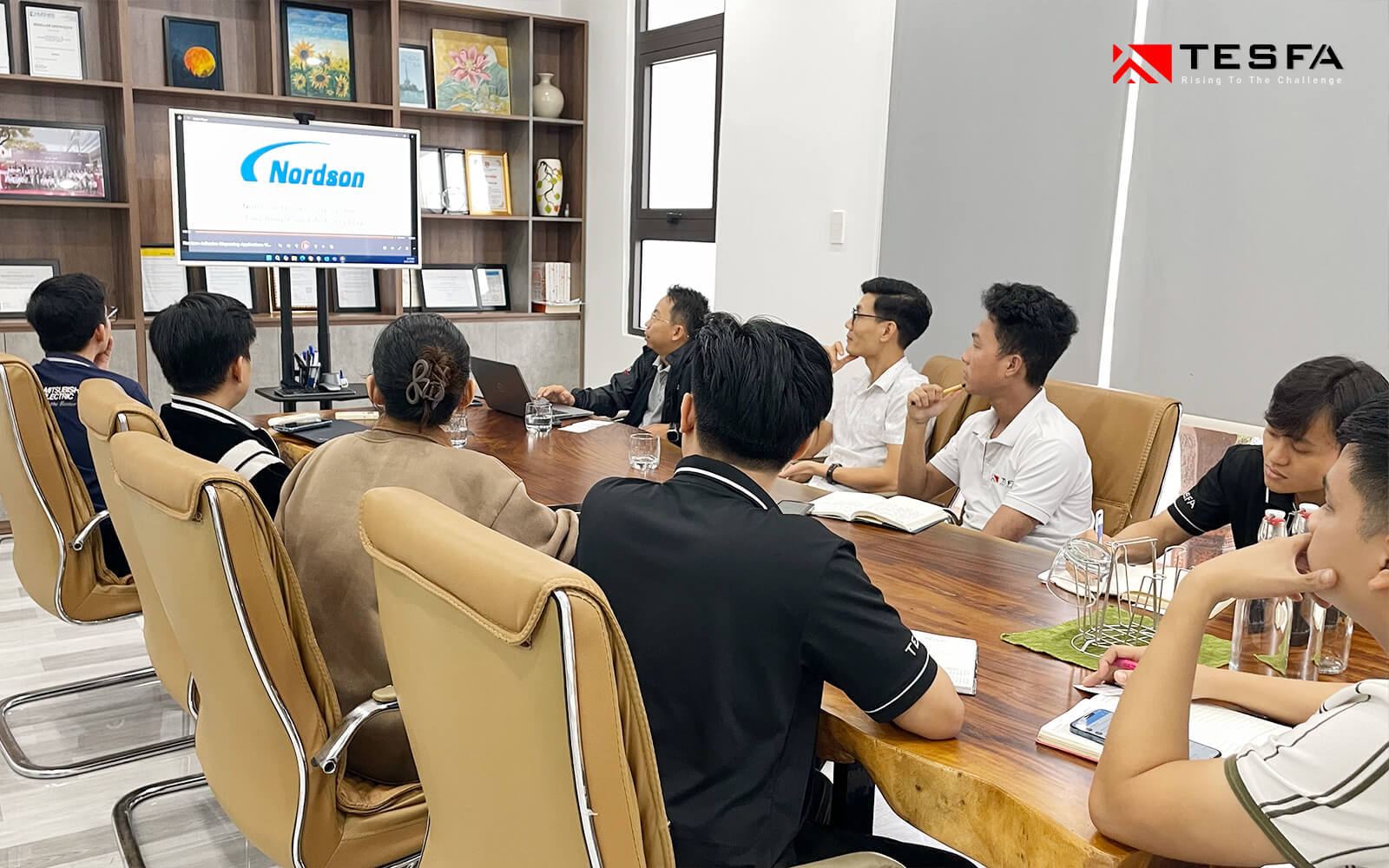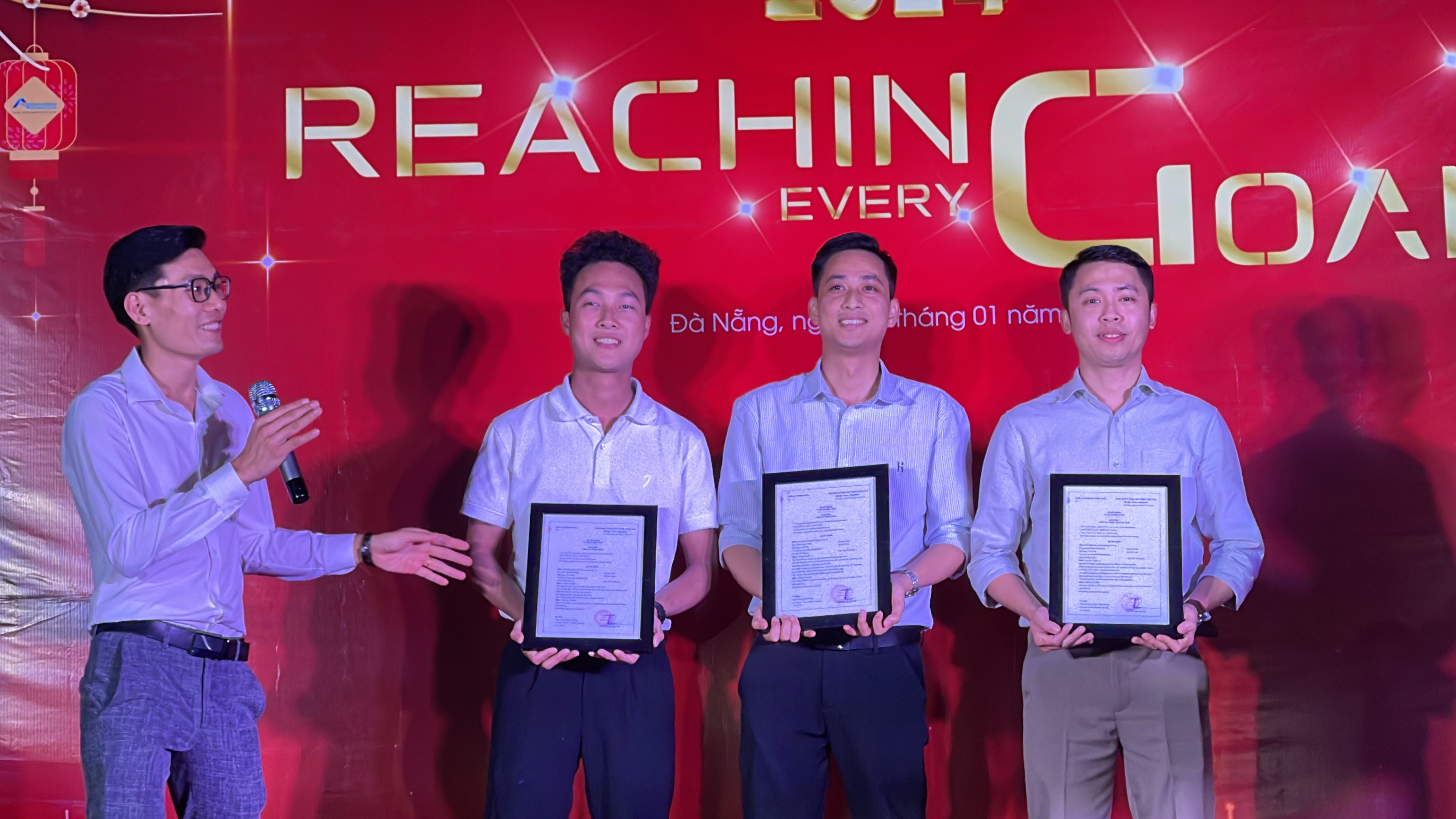In the era of digitalization, Artificial Intelligence (AI) has become an inseparable part of daily life and work. A recent internal sharing session by the HR-Marketing team at TESFA provided deep insights into the profound impact of AI on how we create content and engage in multimedia communication. The session also highlighted the opportunities and challenges that AI brings to the table.
Practical Insights from Work
The session kicked off with a thought-provoking question: “Are we wasting time on repetitive, labor-intensive tasks with low efficiency?” Mr. Duy Hưng, a Marketing Specialist at TESFA, pointed out that website content writing is one of the most repetitive tasks, requiring both creativity and a deep understanding of the product to produce high-quality, unique content. On average, each article consumes 3 to 4 hours of the team’s time.

To address this, the TESFA team has proactively adopted AI. AI tools have automated repetitive processes, saving time and allowing the team to focus on more complex, value-added tasks.
The Impact of AI: A Double-Edged Sword
The Surface: Speed and Efficiency
With AI assistance, the time required to write an article has dropped from 3 hours to a single click. The team showcased a live example of using AI to generate SEO-compliant content, complete with a headline, clear outline, engaging introduction, and integrated keywords. Initial assessments deemed it a high-quality piece.

The Depths: Quality and Reliability
However, the TESFA team also highlighted AI’s limitations. Since March 2024, Google has rolled out anti-spam algorithms to combat low-quality content. With 5 million articles posted daily on WordPress, if 70% of them are AI-generated, Google’s credibility could be severely undermined.

Google does not ban AI-generated content outright but prohibits spam content. This means AI-generated material can still rank well if it is reader-focused, provides comprehensive information, and includes credible references. Mr. Duy Hưng shared Google’s criteria for evaluating high-quality content to reinforce this point.
AI: Replacement or Support?
Benefits of AI
AI optimizes resource allocation, reduces costs, and accelerates implementation timelines. The live example presented at the session’s outset garnered widespread agreement from attendees. A project that once required 4–5 content creators now needs only 2, cutting the budget by half—a significant saving.

Limitations of AI
However, the team emphasized a critical caveat: the quality of AI-generated content hinges on the expertise of the person inputting the prompts. Without knowledge of Marketing or SEO, users risk producing content flagged as spam. Thus, skilled professionals are essential to provide accurate requirements and standards, guiding AI to generate appropriate and effective content.

Automating Content Writing with AI
The trend of automation is rapidly advancing, and AI has significantly enhanced the efficiency of these processes. The HR-Marketing team demonstrated how automation combined with AI has been applied to streamline website content writing.

Conclusion
The session wrapped up with a short game to reinforce the key takeaways. The TESFA team underscored that AI is transforming the world at an unprecedented pace. By understanding its impact and preparing for the changes it brings, we can fully harness the potential of this technology.










